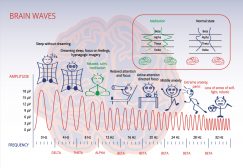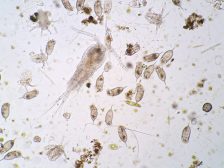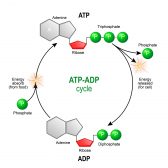Green revolution
advances in genetics, petrochemicals, and machinery that culminated in adramatic increase in crop productivity during the third quarter of the20th century.
The introduction of pesticides and high-yield grains and better management during the 1960s and 1970s which greatly increased agricultural productivity.A term relating to the advantages that have been harnessed by mans better understanding of genetics. By determining the genotype of species such as maize, two organisms are deliberately crossed to produce a hybrid with desirable characteristics. Such pre-determined mating of organisms has resulted in increased crop yields for example, as a result of more productive crops as a result of them having the desirable characteristics from its parents.
Dictionary > Green revolution
You will also like...

Sleep and Dreams – Neurology
While learning and intelligence are associated with the functions of a conscious mind, sleep and dreams are activities o..

Freshwater Communities & Plankton
Planktons are microscopic organisms that live suspended in aquatic habitats. There are two groups: the phytoplanktons an..

Still Water Animals
Animals living in aquatic habitats have diversified and evolved through time. They eventually occupy ecological niches a..

The Water Cycle
The water cycle (also referred to as the hydrological cycle) is a system of continuous transfer of water from the air, s..

ATP & ADP – Biological Energy
ATP is the energy source that is typically used by an organism in its daily activities. The name is based on its structu..

Genetic Engineering Advantages & Disadvantages
This tutorial presents the benefits and the possible adverse eventualities of genetic engineering. Know more about this ..

